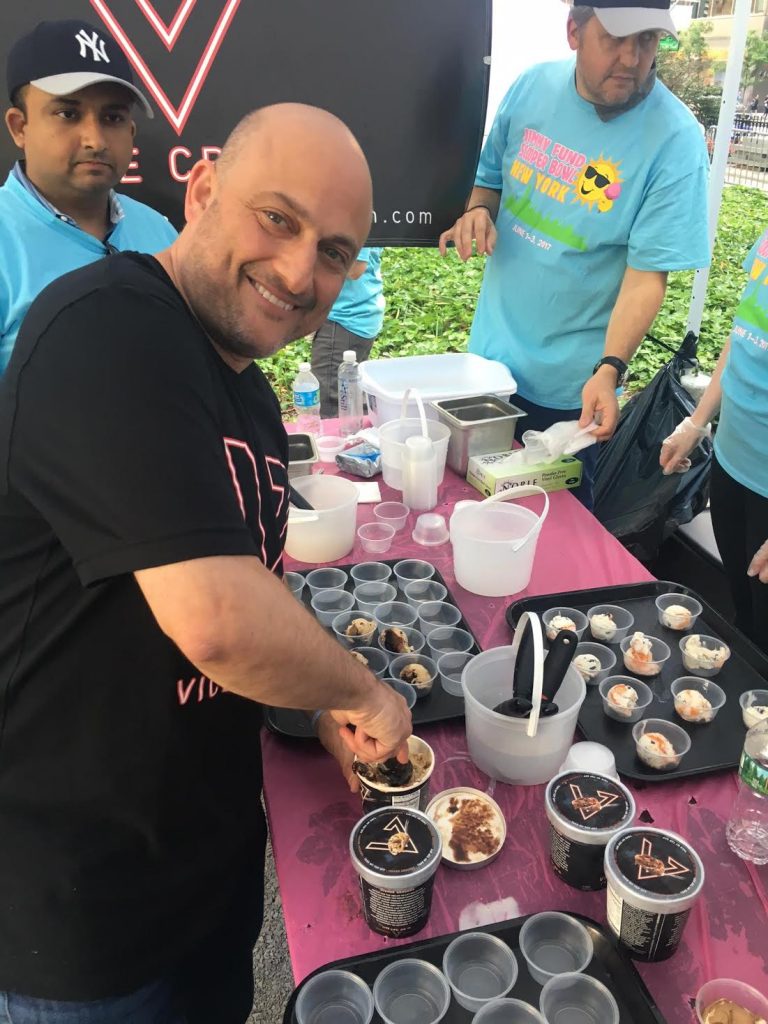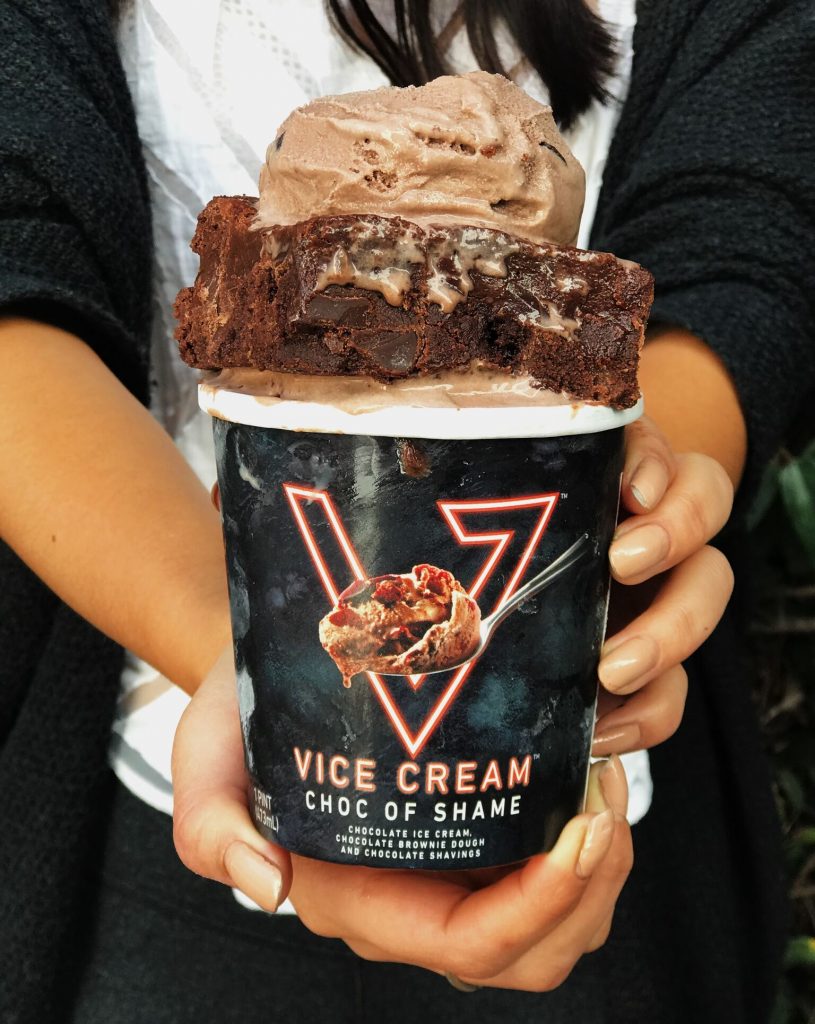An ice cream fanatic whose summer job in college was driving a Good Humor ice cream truck, Dan Schorr had a vision to create a new, decadent ice cream that would appeal to the young and young at heart. But just a few weeks later, Schorr, who had been an accomplished endurance athlete, was diagnosed with an aggressive form of lymphoma and told he would have 12 weeks to live without treatment. He went through treatment at the Dana-Farber Institute in Boston, and as of August 2016 has been fortunate to say he’s cancer free. Soon after, Vice Cream was born, offering indulgent flavors like Afternoon Delight and Breakfast in Bed. (We know what you’re thinking, and yes, that’s what they want you to think. Adults eat ice cream, too).
Through the brand’s “Nice Vice” program, they partner with cancer institutes nationwide and donate to support the cause. It’s a central part of the mission to give back to cancer institutes through Pints with a Purpose, which has donated over $25,000 to benefit cancer research institutes to date. We spoke to Schorr, who gives “cream-o-therapy” in the form of free pints to cancer patients, families and hospital staff, about why being a socially conscious company really matters.
Where did this all begin for you?
Food and business were personified by my summer job in college driving the Good Humor ice cream truck. It was there I learned what it was like to drive across the bridge into Rochester just to save a nickel on each individual can, because there wasn’t a bottle law there. In that experience, I learned how five cents can be the bottom line.

Are there any especially sweet stories you can share with us?
We had a little boy named Bobby battle brain cancer at Massachusetts General Hospital a while back, and at the end of treatment, he gets to ring a bell. This doesn’t mean he’s cancer free, but it’s to signify his treatment is over. All he wanted for that ceremony was lemon ice cream. At the time, we didn’t make lemon ice cream – but we do now.
We gave Bobby what he needed that day, lemon ice cream. Some time later, Bobby is cancer free and his mother calls us up to to share the news. She tells us that the lemon ice cream we created for Bobby for his ceremony meant so much to him during the whole process. It’s moments like this, where it doesn’t cost us anything, but it’s a sincere and personal effort on our part that’s worth more than a check. Our goal is to do things that are meaningful to cancer patients and their families, things you can’t necessarily put a price on.

What’s something you wish you learned sooner in your journey in starting and growing Vice Cream?
Where do I start? I wish I learned earlier that you really need to get buy-in from everyone in both your professional and personal ecosystem. From mothers, sisters and brothers to your banker, insurance person, investors etc. – people really need to understand what it means to start a business, and most importantly, they need to buy into it.
What ‘s your best advice for a fellow aspiring social entrepreneur?

Does being a social entrepreneur that pose any challenges that a typical business owner may not face?
When it comes to investors and retailers, financials are the most motivating factor for them, and sometimes our interests are not necessary aligned. Investors and retailers are most interested in what you’re contributing to the bottom line, and if you do good in the process of contributing to the bottom line that’s fine, but it’s not a necessity to them. This can sometimes be an internal challenge, especially when the CEO and founder is so close to the purpose and mission.
If someone out there reads this and wants to support your business, how can they do so?
We first started in 20 stores in the Boston area, and now we’re available in more than 5,000 retail stores across the country – from Publix stores in Florida to Safeway stores in San Francisco. You can find out which store near you carries Vice Cream on our website here.

